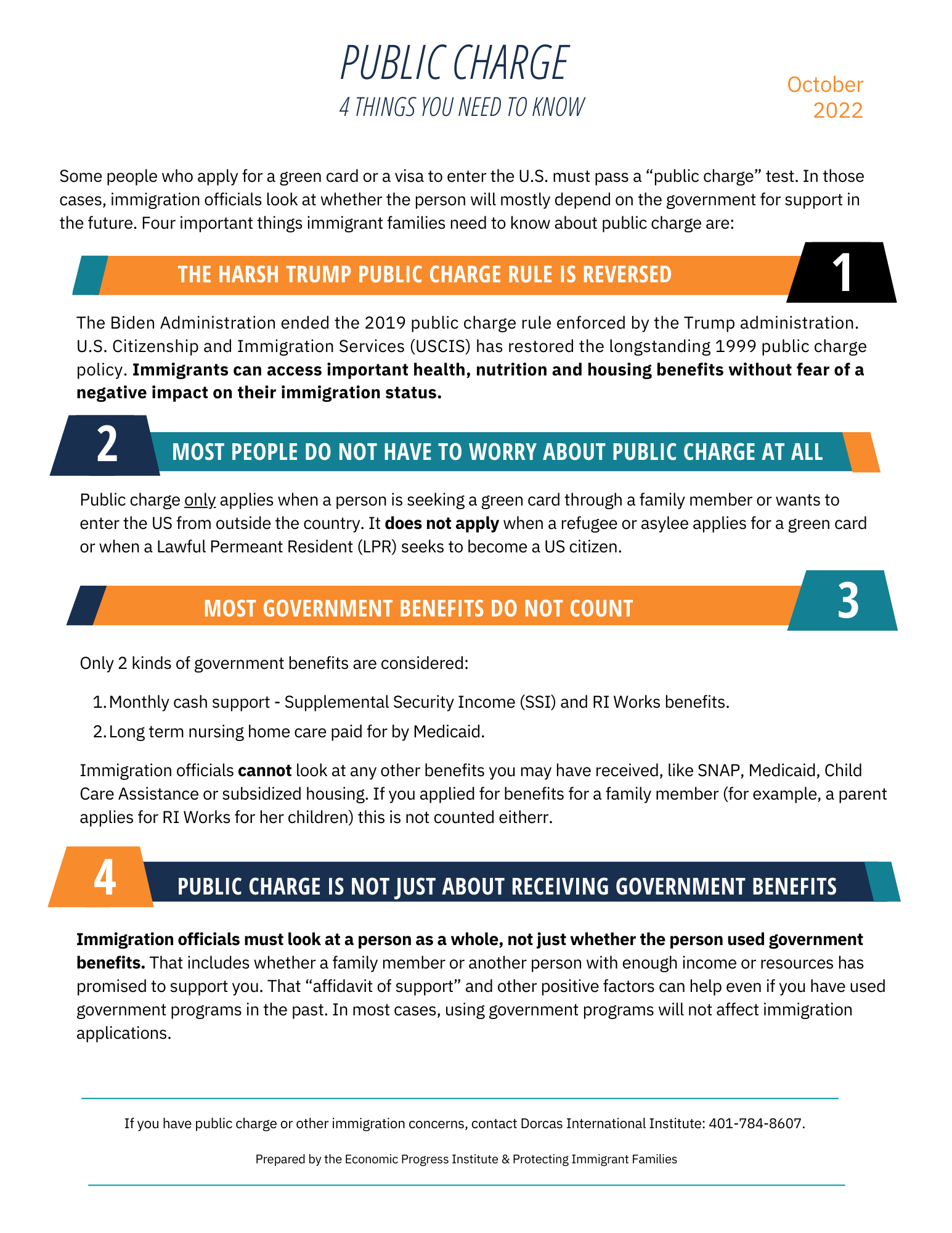PUBLIC CHARGE
What is Public Charge?
“Public charge” means that an individual is likely to become primarily dependent on the government for support, either through cash-aid for income support or long-term nursing home care paid for by Medicaid. If immigration officials decide someone is likely to become a public charge, they can deny someone trying to enter the U.S. or trying get a green card (lawful permanent resident status).
How is public charge determined?
In a “public charge test,” officials look at all of a person’s circumstances, including income, employment, health, education or skills, family situation and whether a sponsor signed a contract (“affidavit of support”) promising to support the person. Officials can determine a public charge based on whether a person has used certain public benefit programs such as cash assistance and long-term care funded by the government.
Reversal of 2019 Public Charge Rule
The Biden Administration ended the 2019 public charge rule enforced by the Trump Administration. U.S. Citizenship and Immigration Services (USCIS) has now restored the longstanding 1999 public charge policy. If eligible, immigrants can access important health, nutrition and housing benefits without fear of a negative impact on their immigration status.
Public Charge Factsheet
Below you will find factsheets provided by The Economic Progress Institute and translations provided by The Immigrant Coalition of Rhode Island:
For the latest information on the public charge issue as it develops, visit: https://protectingimmigrantfamilies.org/

